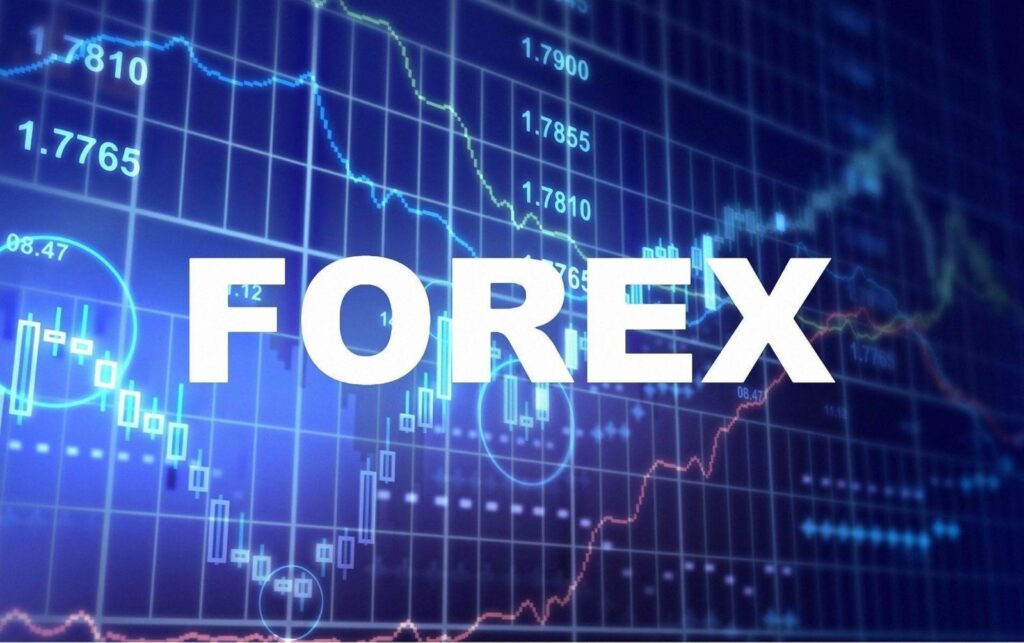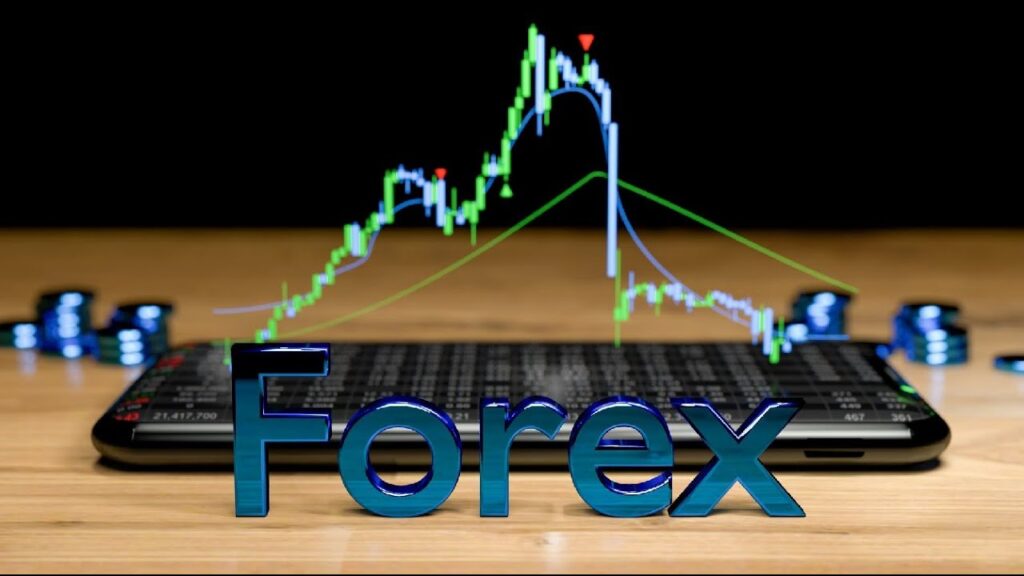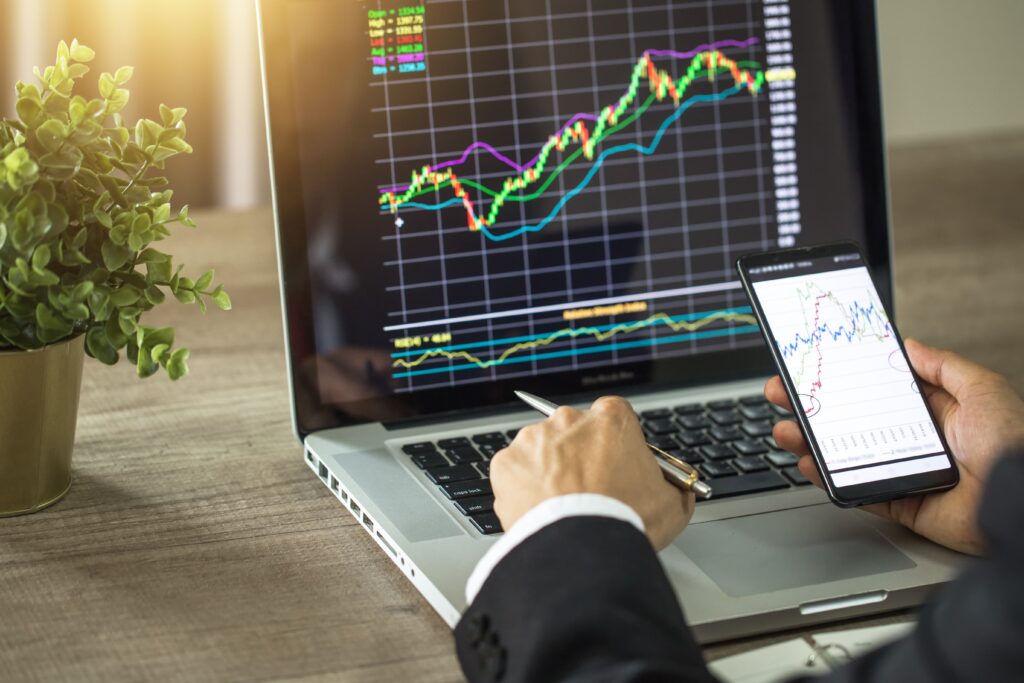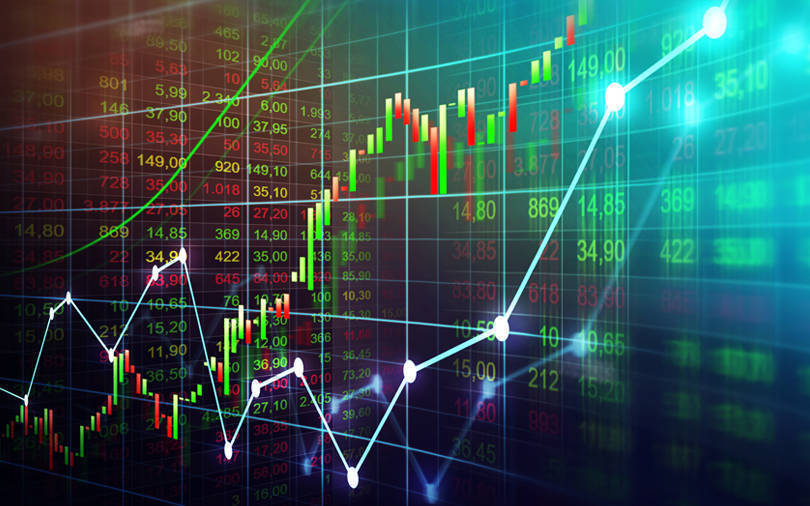Forex trading, or currency trading, is one of the largest and most liquid financial markets in the world. In the UK, the forex market offers numerous opportunities for both beginners and experienced traders. It allows individuals to trade various currencies and potentially profit from fluctuations in exchange rates. This comprehensive guide will help you understand the basics of forex trading, the key players involved, strategies, risks, and how to get started in the UK.
What is Forex Trading?
Forex trading involves buying and selling currencies in a global market. Unlike other financial markets, forex is decentralized, meaning there is no central exchange. Instead, currencies are traded over-the-counter (OTC) through brokers and financial institutions. The primary goal of forex trading is to exchange one currency for another in hopes that the value of the purchased currency will rise relative to the sold currency.
For example, if you believe the Euro will strengthen against the US Dollar, you might buy EUR/USD. If the Euro rises, you can sell your position to make a profit.

How the Forex Market Works
The forex market operates 24 hours a day, five days a week, with trading sessions in different global financial hubs such as London, New York, Tokyo, and Sydney. Since it is decentralized, it is highly liquid, meaning there is always a large volume of buying and selling. The UK, being one of the global financial centers, plays a significant role in the forex market, particularly during the London trading session.
Currencies are traded in pairs, where the first currency is the base currency, and the second is the quote currency. For example, in the EUR/USD pair, the Euro is the base currency, and the US Dollar is the quote currency. If the EUR/USD exchange rate is 1.20, this means 1 Euro is worth 1.20 US Dollars.
The major currency pairs in the forex market include:
- EUR/USD (Euro/US Dollar)
- GBP/USD (British Pound/US Dollar)
- USD/JPY (US Dollar/Japanese Yen)
- AUD/USD (Australian Dollar/US Dollar)
- USD/CHF (US Dollar/Swiss Franc)
Why Trade Forex in the UK?
The UK is one of the largest forex trading hubs in the world, with London being the most important financial center for forex transactions. There are several reasons why traders choose to trade forex in the UK:
1. Liquidity and Market Size
The forex market is the largest financial market globally, with a daily trading volume exceeding $6 trillion. This offers traders the opportunity to enter and exit trades with minimal slippage and spreads.
2. 24-Hour Market
The forex market operates 24 hours a day, meaning UK traders can participate in the market at any time. Whether you’re a day trader, swing trader, or long-term investor, the flexibility of the forex market makes it accessible for various trading styles.
3. Regulation
The UK is home to some of the most reputable financial regulatory bodies, such as the Financial Conduct Authority (FCA). FCA-regulated brokers are required to follow strict guidelines, ensuring that traders are protected from fraud and financial instability.
4. No Central Exchange
Unlike stocks and bonds, forex trading does not rely on a central exchange. This provides more flexibility for traders as they can access the market through different brokers and platforms.
Key Players in the Forex Market
Several key players participate in the forex market, each with different motives and levels of impact on currency prices:
1. Central Banks
Central banks, such as the Bank of England (BoE), European Central Bank (ECB), and Federal Reserve, play a significant role in the forex market. They regulate monetary policy, set interest rates, and intervene in the market to stabilize the economy and manage inflation.
2. Banks and Financial Institutions
Major global banks, such as JPMorgan, HSBC, and Goldman Sachs, are active participants in forex trading. They facilitate currency transactions for their clients and also trade on their own behalf.
3. Hedge Funds and Investment Firms
Hedge funds and investment firms often trade in large volumes in the forex market, speculating on currency movements to make profits. Their trades can have a significant impact on exchange rates.
4. Retail Traders
Retail traders, such as individual investors and smaller institutions, make up a smaller portion of the market. However, with the rise of online trading platforms, retail traders now have access to the forex market with leverage, enabling them to participate in currency trading on a much larger scale.
How to Get Started with Forex Trading in the UK
If you’re new to forex trading, it can seem overwhelming. However, with the right tools, resources, and strategies, anyone can start trading forex. Here’s a step-by-step guide on how to get started:
1. Choose a Reliable Forex Broker
The first step in starting forex trading in the UK is to choose a reliable and regulated broker. It’s essential to select a broker that is authorized by the Financial Conduct Authority (FCA). This ensures that the broker follows strict financial regulations and provides protection for traders’ funds.
Some of the top forex brokers in the UK include:
- IG Group
- CMC Markets
- Saxo Bank
- eToro
- Plus500
When selecting a broker, consider the following factors:
- Regulation and Licensing
- Fees and Spreads
- Leverage and Margin
- Trading Platforms
- Customer Support
- Educational Resources

2. Open a Trading Account
Once you’ve selected a broker, you’ll need to open a trading account. Most brokers offer different types of accounts, including demo accounts (for practice) and live accounts. A demo account allows you to practice trading with virtual money before committing real capital.
To open a live trading account, you’ll typically need to provide some personal information and financial documents. The verification process may take a few hours to a few days, depending on the broker.
3. Understand Forex Trading Terms
Before you start trading, it’s important to understand key forex terms, such as:
- Pip: The smallest unit of price movement in a currency pair.
- Leverage: The ability to control a large position with a smaller amount of capital.
- Spread: The difference between the buying and selling price of a currency pair.
- Lot: The standard size of a trading position.
Understanding these terms will help you execute trades with confidence and manage risk effectively.
4. Fund Your Trading Account
After your account is set up, you’ll need to deposit funds into your account. Most brokers accept various deposit methods, such as bank transfers, credit/debit cards, and e-wallets (PayPal, Skrill). Ensure that you are aware of any deposit fees and the time it takes for funds to appear in your trading account.
5. Start Trading with a Demo Account
Before trading with real money, it’s highly recommended to practice with a demo account. This allows you to get familiar with the platform, test different strategies, and build confidence without risking your own funds. Most brokers provide demo accounts with virtual funds, enabling you to practice in a risk-free environment.
6. Develop a Trading Strategy
Successful forex traders have a solid strategy in place. Some of the most popular strategies include:
- Day Trading: Buying and selling currencies within the same trading day.
- Swing Trading: Holding positions for several days or weeks to capitalize on short- to medium-term price movements.
- Scalping: Making small profits from quick, frequent trades.
Each strategy has its own risk and reward profile, so it’s essential to choose one that suits your risk tolerance and trading style.
Risks of Forex Trading
While forex trading can be profitable, it’s also risky. The main risks involved include:
1. Market Volatility
Forex markets can be highly volatile, especially when major economic events or news breaks. This volatility can lead to significant price movements, which may result in substantial profits or losses.
2. Leverage Risks
Leverage allows traders to control larger positions with a smaller amount of capital. While this can amplify profits, it can also magnify losses. Be sure to use leverage cautiously and only trade with funds you can afford to lose.
3. Psychological Pressure
Forex trading requires discipline and emotional control. Losses can lead to emotional stress, which may cause you to make impulsive decisions. It’s important to stick to your trading plan and avoid chasing losses.
Forex Trading Regulations in the UK
The UK forex market is highly regulated, with the Financial Conduct Authority (FCA) being the key regulatory body. The FCA ensures that brokers adhere to strict standards of conduct, including protecting client funds and providing transparency. UK traders are also protected by the Financial Services Compensation Scheme (FSCS), which provides compensation if a regulated firm fails.

Conclusion
Forex trading in the UK offers exciting opportunities for investors and traders looking to profit from currency fluctuations. With the right tools, strategies, and a sound understanding of the market, forex trading can be a rewarding endeavor. However, it is essential to acknowledge the risks involved and trade responsibly.
As a beginner, focus on building your knowledge, starting with a demo account, and gradually transitioning to live trading. Choose a reliable and regulated broker, develop a solid trading strategy, and keep track of market trends to maximize your chances of success. With the right approach, forex trading can become a valuable addition to your investment portfolio.
